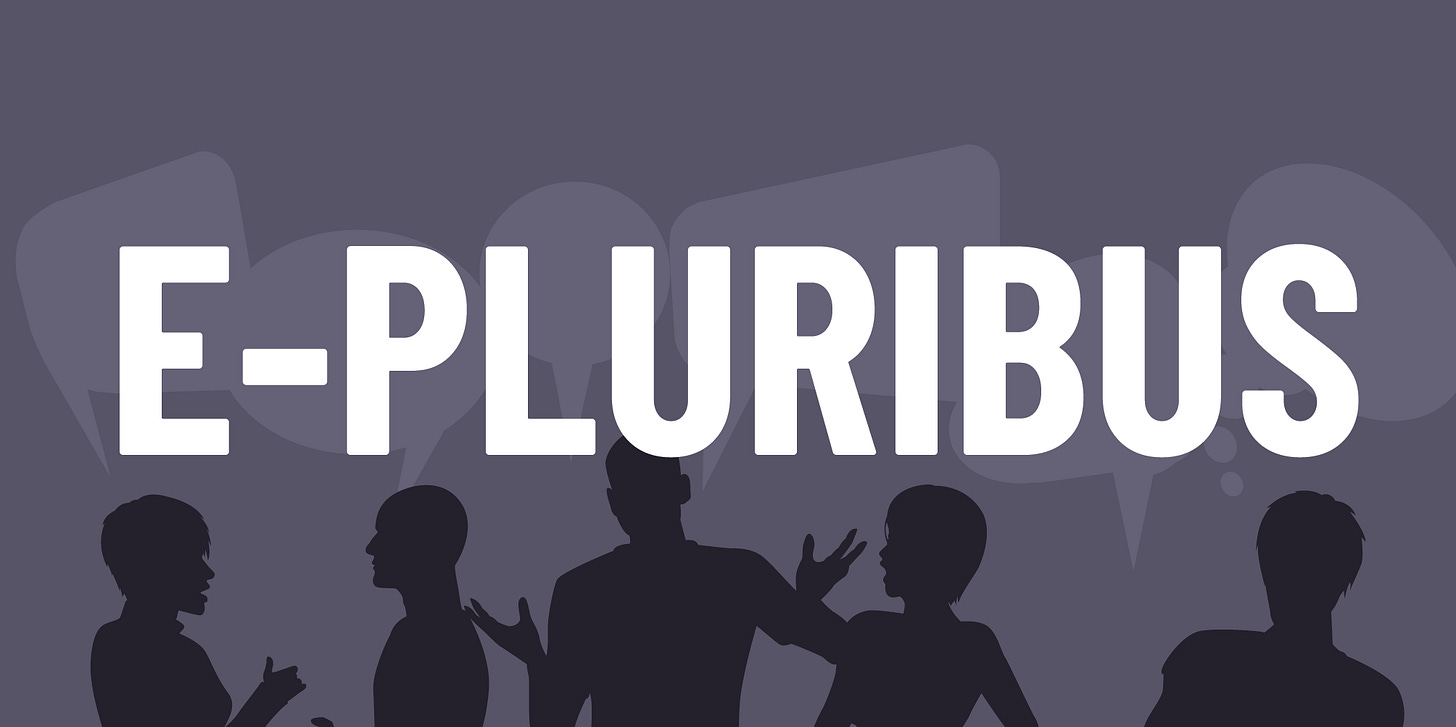E-Pluribus | February 17, 2022
What does the Ukraine and Russia standoff tell us about the West and liberal ideals, jail for being wrong and a jerk, and Columbia University's core is rotting.
A round up of the latest and best writing and musings on the rise of illiberalism in the public discourse:
Cathy Young: Russia, Ukraine, and the West's Crisis of Liberal Faith
There are plenty of indications right here at home that classical liberalism is under assault, but Cathy Young at Arc Digital says the current standoff between Ukraine and Russia and Western governments, the responses from politicians and pundits are telling as well.
Carlson’s and Hanania’s stance isn’t simply a case of “If Biden’s for it, I’m against it”; it’s a more fundamental hostility to the Western liberal order, which Ukraine’s pro-NATO, pro-European integration leadership seeks to join and to which Putin’s Russia stands in opposition. Hanania is an exponent of the view that liberals hate Putin’s Russia because its conservatism on cultural issues like gay rights and feminism makes it “the Great Satan” of progressives. (This is a slightly more sophisticated version of right-wing Twitter rantings about how the libs hate Putin because he’s a patriot and an anti-globalist, or even because Russia is Christian, unwoke and white.)
Carlson enthusiastically embraces this position; before the 2020 election, he pushed the theory that the Democrats were trying to oust Trump via a “Color Revolution”—thus endorsing the Kremlin propaganda trope in which the “Color Revolutions” that ousted pro-Moscow regimes in several former Soviet republics including Ukraine in the 2000s were products of insidious Western subversion.
[ . . . ]
But to anti-liberal American conservatives like Sohrab Ahmari and Patrick Deneen, Ukrainian integration into the EU and NATO is not about freedom at all; those institutions represent a godless, barren, depraved, multicultural, politically correct “liberal empire.”
Of course, the left has its own problems when it comes to defending the liberal order, which progressives—a key part of the liberal coalition today—spend so much time denouncing as a cover for white supremacist patriarchy. (And that’s not to mention that the “liberal order” privileges advanced, democratic industrial nations—most of them majority-white—as a special zone where peace is assumed to be the norm and war is especially shocking.)
Read the whole thing.
Charles C. W. Cooke: Britain Sends Woman to Jail for Eleven Months for Writing Ugly Posts on Facebook
The concept of “I disagree with what you say but I will fight to the death for your right to say it” seems almost quaint in light of a recent jail term handed down to an obnoxious woman in the country of Charles C. W. Cooke’s nativity. While clearly considering her a “bit of a loon”, National Review’s Cooke decries the very idea that someone’s bad, misinformed, or even blatantly untrue opinions should merit retribution from any government, let alone prison.
Britain is supposed to be a free country, and in free countries, free people are allowed to say stupid and terrible things without being sent to jail for eleven months.
During the trial at the Old Bailey, Britain’s most famous courtroom, the prosecutor, Hugh French
told jurors that two of her posts “crossed the line as to what is acceptable in a liberal society,” The Independent reported.
Can French not hear himself? This is exactly the sort of thing that is “acceptable in a liberal society.” That’s what “liberal society” means. To add a “but” or a “however” after such sentiments is to dissolve them completely.
It is also to admit caprice. Where, precisely, is Hugh French’s “crossed line”? Why was Ahmed treated differently than the thousands (millions?) of others in Britain who post ugly things on social media each day? Is her bile different, somehow, because it was related to a fire? Or is this just what a particular jury happened to believe on a particular day?
Read it all.
David Acevedo: Columbia’s Crumbling Core
Over a century ago, Columbia University introduced a class called “Contemporary Civilization in the West” that became the cornerstone of its Core Curriculum. But David Acevedo writes at First Things that recent changes to the program, specifically the Great Books offerings, leave much to be desired.
[T]he Columbia Core is crumbling—and quickly. Students who flock to Columbia today to experience the Core will be sorely disappointed.
The Core course Literature Humanities (LitHum), marketed as the most important course any Columbia student takes, serves as a good case study for the issues plaguing the Core at large. Before an incoming freshman steps on campus, he’s given his first reading assignment: Books I–VI of The Iliad. So far, so good. But look at the rest of the reading list. Some recent additions—and deletions—are alarming.
[ . . . ]
The truth is that the campus activists Columbia administrators are trying to pacify don’t care all that much about diversity, equity, or inclusion—in no small part because these three concepts have come to mean the opposite of what their names would imply. “Diversity” means a complete rejection of intellectual diversity for the sake of immutable and unearned census categories; “equity” means unfairly handicapping the so-called privileged in favor of the so-called oppressed; “inclusion” means excluding all perspectives that do not fit neatly within a far-left worldview.
Indeed, the DEI charade is about nothing more than accruing power and crushing resistance. The movement’s more astute leaders realize this, while true DEI believers play the role of useful idiot. While I was at Columbia, many of my undergraduate peers were all too happy to serve as foot soldiers for the DEI militia, driving countless class discussions into the identity-politics ditch without batting an eye.
Read it all here.
Around Twitter
Ayaan Hirsi Ali on a “hate speech” trial in Finland:
Interesting back and forth between Noah Smith and Wesley Yang on wokeness/super-wokeness and the San Francisco school board elections:
Give Charles Cooke a listen on Andrew Heaton’s podcast on free speech and Spotify:
Finally, just in case anyone was confused:










